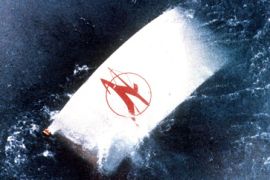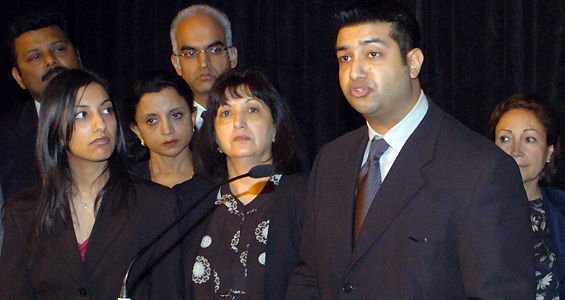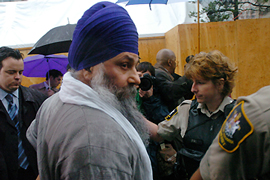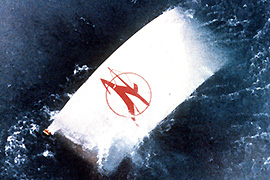A Canadian tragedy awaits closure
Relatives of those killed in 1985 bombing of Air India flight await results of inquiry.

 |
| Victims’ relatives say despite several probes and a trial, many questions remain [GALLO/GETTY] |
Twenty five years after an Air India Boeing 747 en route from Canada to India exploded off the coast of Ireland, the results of an inquiry into the bombing are keenly awaited by the relatives of the victims.
The four-year-long investigation into the June 23, 1985, destruction of Flight 182 that killed 329 people is to be released on Thursday in Ottawa.
The report is expected to put the spotlight on Canada’s failure to bring to justice those responsible for the deadliest bombing of an airliner in history.
It will also examine aviation security, terrorism financing and Canada’s ability to handle major terror-related trials in the future.
Relatives of those killed in the attack had long demanded such an inquiry after their concerns were not answered, even after several major official investigations and a criminal trial.
The Canadian government eventually agreed to their demand on May 1, 2006, when it named John C Major, a retired supreme court justice, to head the Commission of Inquiry into the bombing.
“This inquiry is not a matter of reprisal, nor is it intended to go back over the criminal trial,” Stephen Harper, the prime minister, said when he made the announcement.
“It is about finding answers to several key questions about the worst mass murder in Canadian history.”
State of denial
Apart from delivering on his election campaign promise to hold a “comprehensive, independent judicial inquiry”, Harper was also re-emphasising the belated acknowledgement of the tragedy as Canadian.
Apart from the mainly Indian crew of the ill-fated flight, most of the passengers were Canadian citizens of Indian origin.
However, it was initially seen as an Indian tragedy.
Brian Mulroney, the then prime minister, called Rajiv Gandhi, his Indian counterpart, to offer his condolences on the deaths but did not call the victims’ families in Canada to do the same.
For many years after that, it looked like the Canadians were trying to help the Indians with their inquiries, rather than get to the root of something insidious within their society.
 |
| Ajaib Singh Bagri was one of two suspects cleared by a Candian court [GALLO/GETTY] |
“Like several other western societies, including the US and Britain, Canada has been slow to recognise the stretching arms of terrorism,” said George Abraham, a contributing editor of Diplomat and International Canada magazine, who covered the tragedy from an Indian perspective.
“It saw itself as an island bounded by oceans and a polar ice cap, and hence somehow immune to mass murder.”
Although after 2001 the Air India attack was often referred to as “Canada’s 9/11”, Maclean’s, a Canadian newsmagazine, said in an article that “it was never close to that.
“The date, June 23, 1985, is not seared into the nation’s soul. The events of that day snuffed out hundreds of innocent lives and altered the destinies of thousands more, but it neither shook the foundations of government, nor transformed its policies. It was not, in the main, even officially acknowledged as an act of terrorism.”
It took Canada 20 years to declare the anniversary of the bombing a national day of mourning.
During the 2005 anniversary observances, Paul Martin, the then prime minister, said the bombing was a Canadian problem, not a foreign problem, saying: “Make no mistake: The flight may have been Air India’s, it may have taken place off the coast of Ireland, but this is a Canadian tragedy.”
The public perception has also changed over the years. In a 2007 opinion poll, 48 per cent of respondents regarded the bombing as a Canadian tragedy, while 22 per cent thought the terror attack was a mostly Indian affair.
In that poll conducted by Angus Reid Strategies, 34 per cent of respondents thought both the Canadian Security Intelligence Service (CSIS) and airport security personnel deserved a great deal of the blame for the bombing. Twenty seven per cent of respondents believed the Royal Canadian Mounted Police (RCMP) were largely to blame, while 18 per cent mentioned Transport Canada.
‘Sikh revenge’
The attack is widely thought to be the work of Canadian-based Sikhs fighting for an independent homeland in India. It was allegedly their revenge for India’s deadly 1984 storming of the Golden Temple in Amritsar, Sikhism’s holiest shrine, to flush out armed fighters who had occupied the temple compound.
An attempt to blow up another Air India flight at the same time was also made: two airport workers in Japan were killed when the bomb exploded prematurely.
As the verdict in the criminal trial in 2005 pointed out, both the bombs were planted at Vancouver airport in two unaccompanied suitcases which were transferred at Toronto airport to the connecting Air India flight and a Canadian Pacific flight to connect further with an Air India flight in Tokyo.
 |
| The bombing of Air India flight 182 off the Irish coast on June 23, 1985, killed 329 people [AP] |
Two Vancouver-based suspects, Ripudaman Singh Malik and Ajaib Singh Bagri, were acquitted in 2005.
Inderjit Singh Reyat, the only person jailed for his role in the bombing, was released in 2009.
Despite the previous inquiries, the criminal trial and countless media reports and books, the latest inquiry was privy to startling revelations.
The surprises include the testimony of James Bartleman, the former Ontario lieutenant-governor, who claims to have seen a specific threat related to Air India around the time of the bombing when he was with the department of external affairs.
He said his warning was rebuffed by Canadian police.
The blunders already revealed by the previous probes include the lack of co-operation, erased telephone tapes, a test explosion by Sikhs under surveillance that was ignored by Canadian security intelligence agents, repeated warnings from India that were ignored and an X-ray machine that did not work.
The current probe may also reveal cover-ups by numerous government agencies. At one stage during his inquiry, Commissioner Major had to threaten to shut down his entire investigation to shame a recalcitrant bureaucracy into full co-operation.
Analysts say the depths of the intelligence failures associated with the Air India case put to shame those identified by the 9/11 commission in the US.
The Major commission is not expected to provide all the answers sought by Canadians.
However, it may bring some closure to the victims’ families in the knowledge that their government has done all it can, even if it is too late.